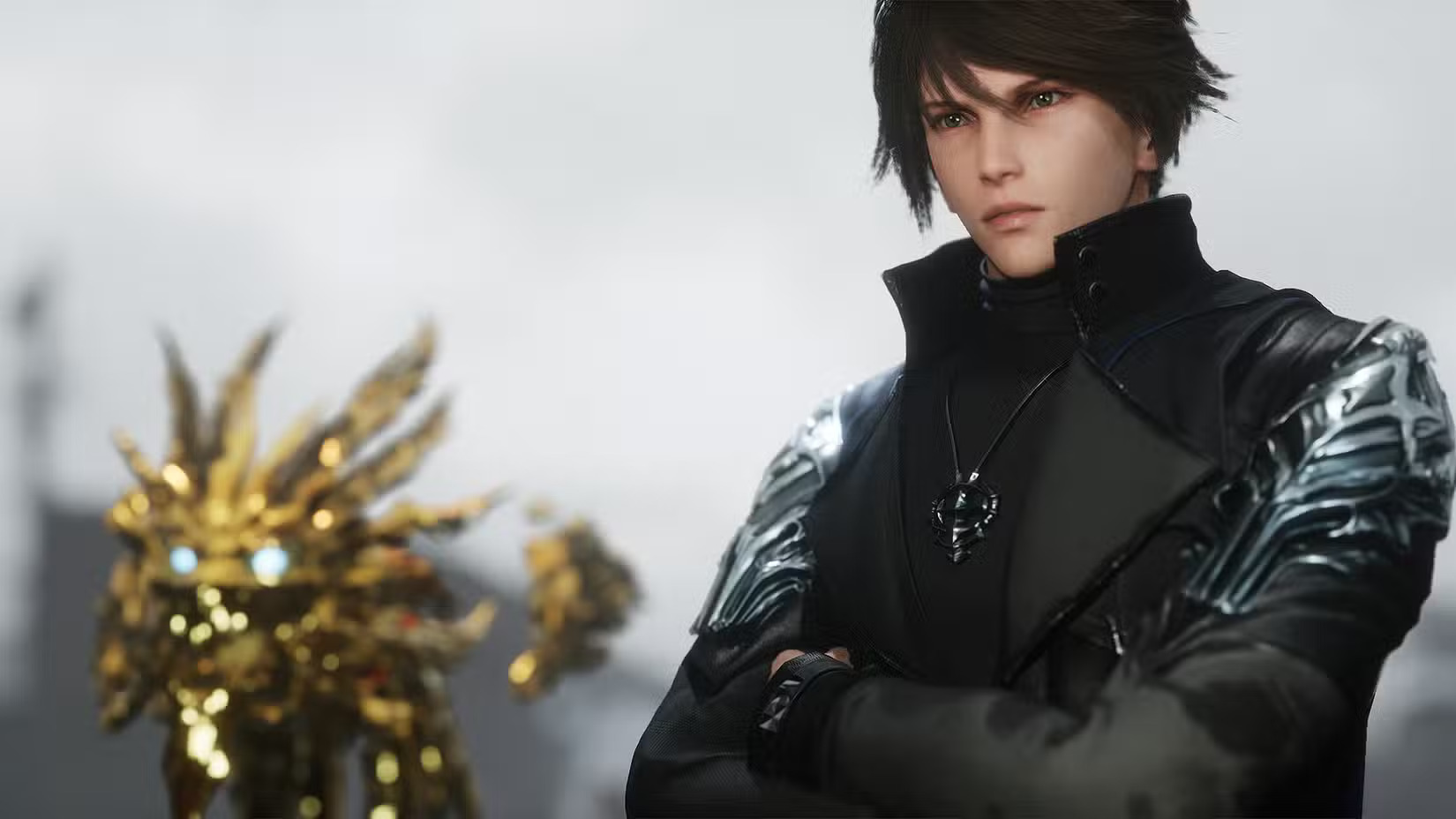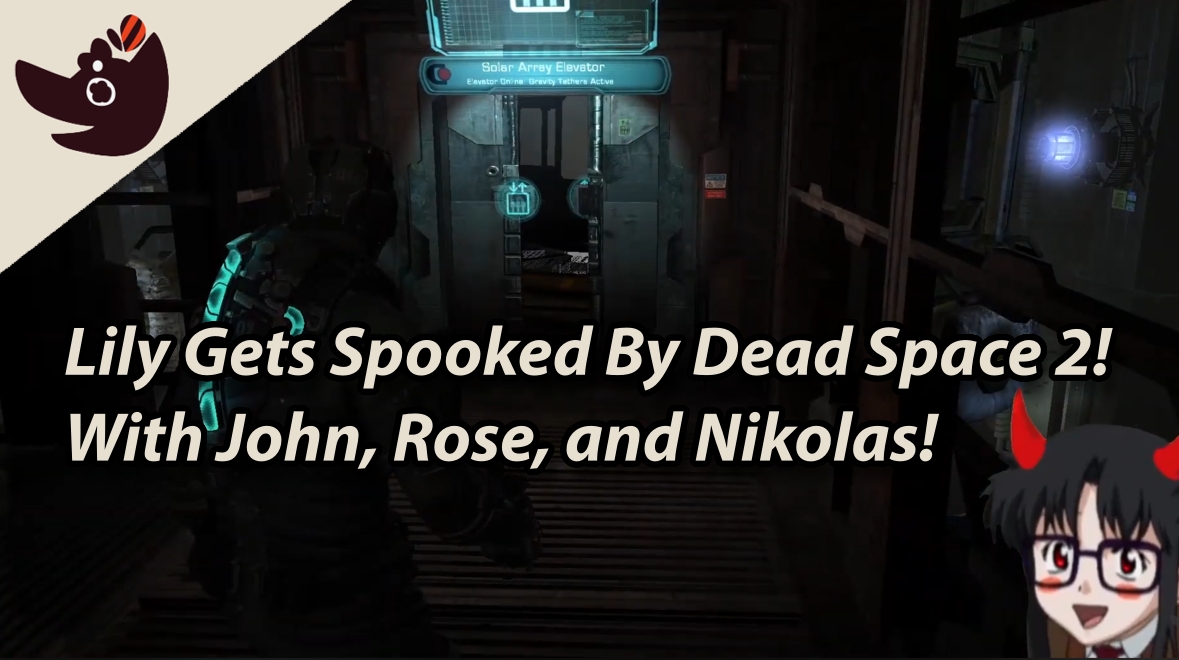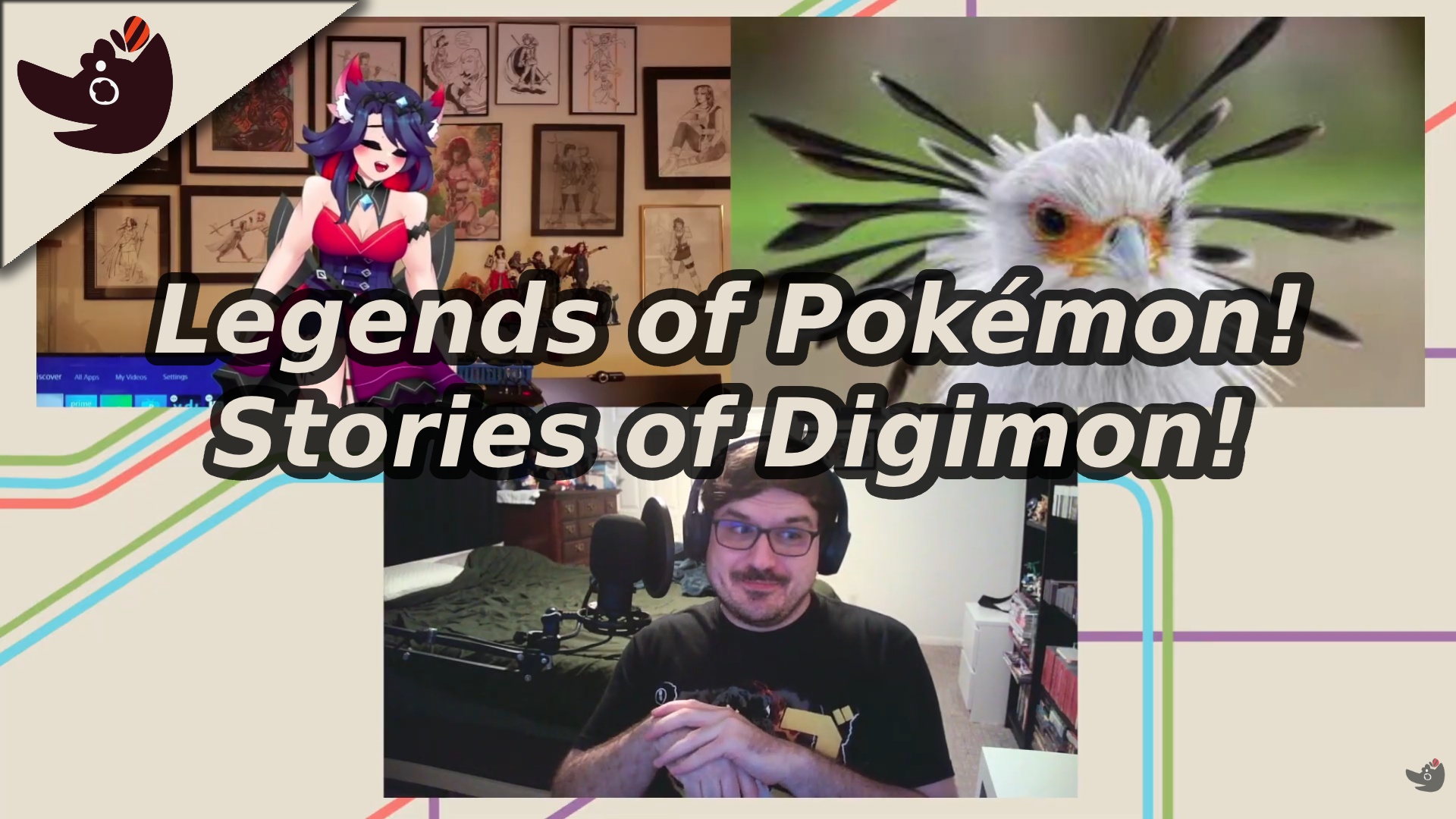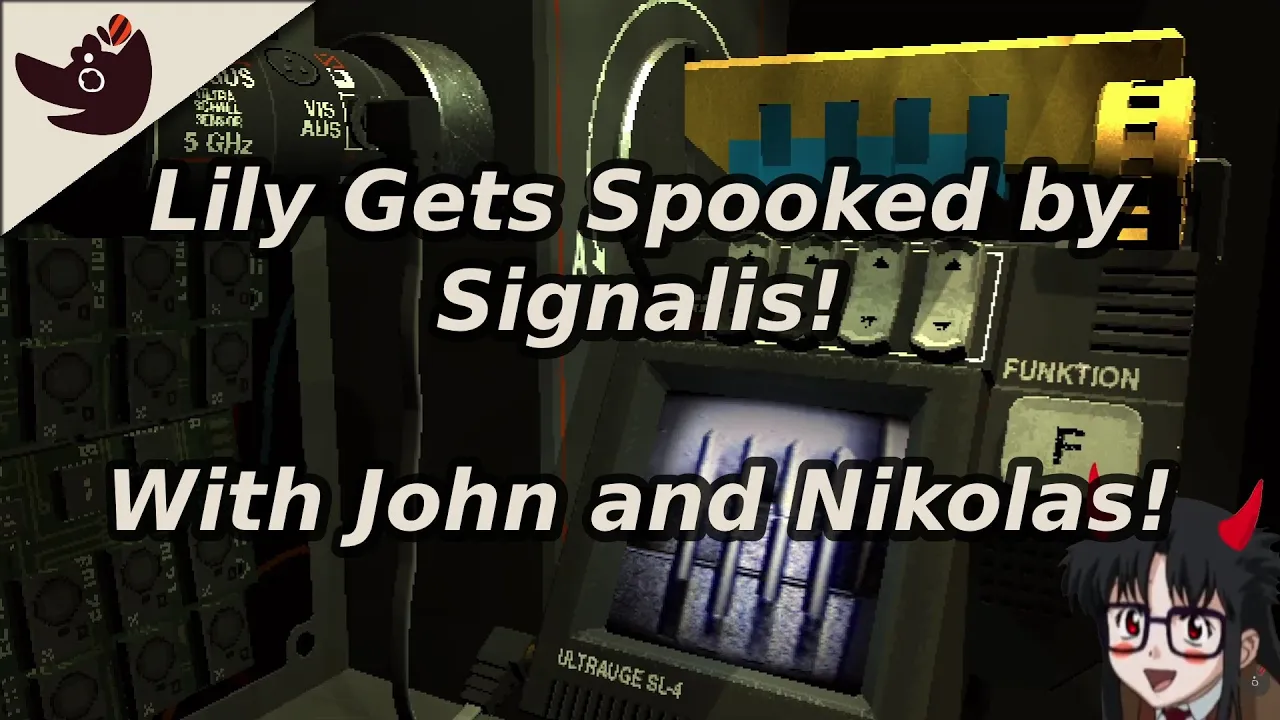Once firmly invested in a medium, you can’t help but find yourself growing gradually more particular. Doubly so when you find a preference for a particular genre. I love RPGs with all my black little heart; I am also nauseatingly particular. When Off—An RPG Maker 2003 based indie game by Mortis Ghost—released in 2008, I did not play it. Likely because whatever resembled “me” in that moment was drooling on herself during a math class—also I did not speak French.
Luckily, in 2011, it was translated to English. I still didn’t play it of course; I was pretty committed to living under a rock. Fate, as it often does, intervened. As with many things in my life at that formative period, I played it to impress a girl. In my hazy recollections I remember the tutorial zone, arriving at the first encounters, then nothing. I never finished it, and as that relationship exploded, Off fell out of my mind.
Seemingly while I was not paying attention—drooling on myself in a new calculus-based, collegiate math program—Off gained a substantive cult following, influencing games as widely known as Undertale. It ingrained itself in cultural memory, sandwiched between Homestuck and Tumblrian 2014 era shitposts. Then in 2024, the game was announced to receive a remaster, and fate once again conspired to ensure I reviewed it in 2025.
It was strange to be playing this half-recollected game from a time my brain has tried to forget. So much of it was familiar yet wrapped in newer packaging. As I played nightly, I researched; I looked through old retrospectives and reviews dated 2014, ’15, ’16. I grew disconcerted. When I finally finished it six days later, I felt the fullness of what I feel now.
Off was kind of dull.
Before we unpack the unkind terseness of that statement, let’s start with what is good. Off now, as it was then, is a treat for those who wish to soak in a place. The minimalist graphics exploding into beautifully illustrated combat sprites is very much a delight. Every few moments, you are witness to the uncanny strangeness of casual-Friday-dressed workers burst into smoke-headed abominations; or in some cases there is literally just a whale.
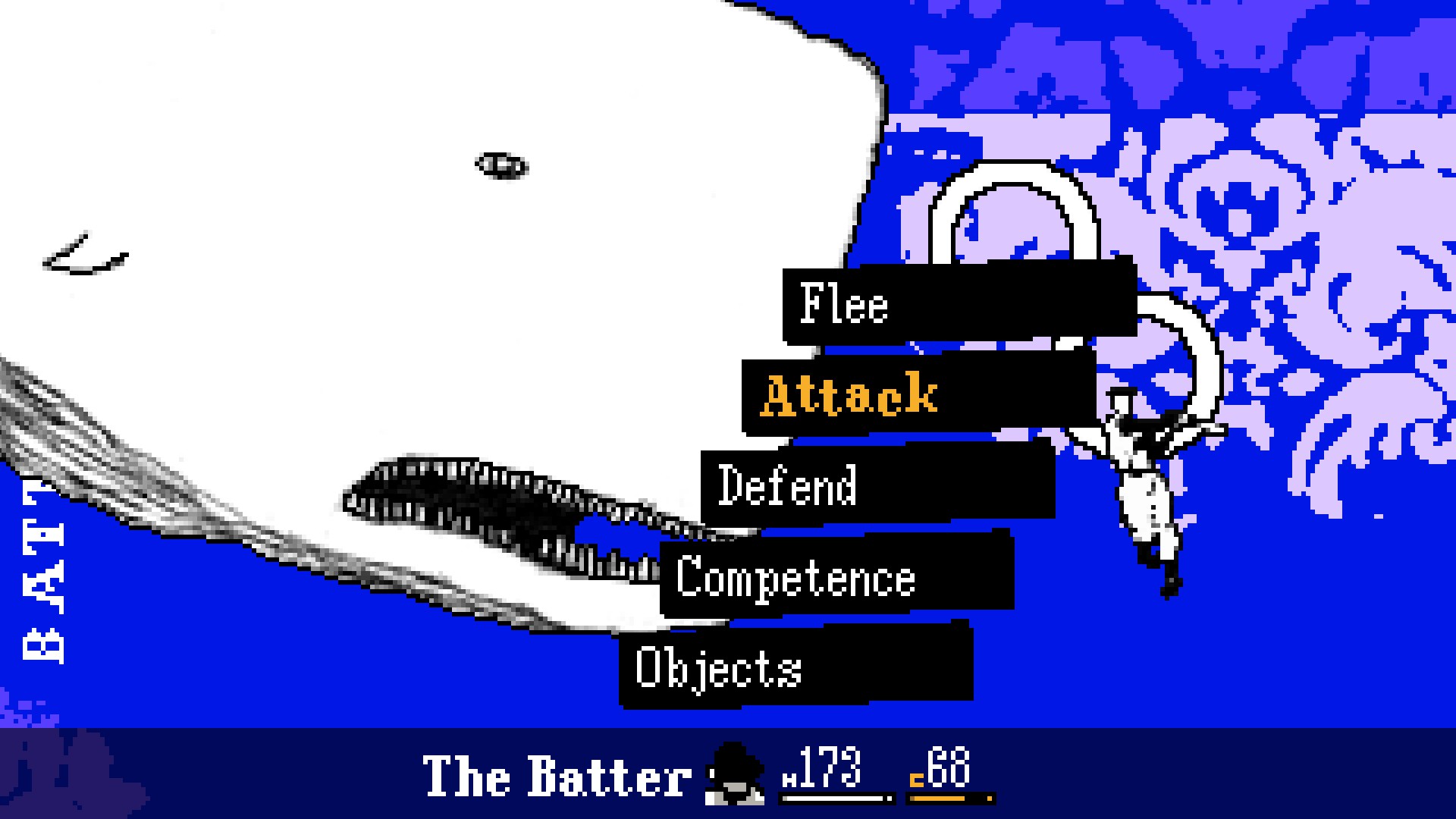
The music, redone by several new composers including even Toby Fox, is wonderful. It is at once odd and ambient in a way which perfectly captures how surreal the world is. While some tracks are large departures from the original soundtrack, I personally found them worthwhile replacements. My personal favorites were those in the new boss fights included in this remastered version, particularly the final new boss.
The new menus and combat UI work far better with the style the game is going for; it removes many of the more standard RPG Maker menu templates. It also demonstrates the necessary restraint to avoid changing things just for changing things sake. Put simply, if you enjoyed Off originally, that game still clearly lives and breathes in this remake with no noticeably frivolous changes.
That, however, is where my problems begin. Over the course of my research, I watched numerous playthroughs and retrospectives. Shortly after finishing, I procured an original version of Off and played through a portion; this was to understand how deep this issue went. When I say that Off is dull, that comes from three particular places: the combat, the puzzles, and even the story.
Combat in Off is not a focus. This is a point conceded even by people who like this game. Off’s combat, even in the remake, is a simplistic thing. If you have played a Final Fantasy of the 16-bit era, you know intimately what Off feels like before ever touching it. Random encounters, ATB bars, managing MP, boss encounters as plot beats, all of this is fairly standard. In most RPGs, random encounters exist to make you feel a sense of threat – a feeling that the world is actually dangerous – and to ablate your resources. This push and pull of stressors is what makes even simple combats engaging. In Off however, these encounters are so monotonous and your resources so plentiful, that all combat becomes a trial of irritation and tedium.
This is especially strange when we consider the fact that most of the additions made by this new release are combat oriented. New bosses which act as the end points to the Purified Zones. Aside from being slightly harder versions of the game’s combat, it’s much the same thing as before; use your best attacks, heal when wounded, and then move on—the game’s story does not seem to regard these conflicts in any meaningful way. In these Purified Zones, there is literally only 1 enemy type, dispatched in numbers of 1 to 3. These are in environments so white that I felt like I was doing a school paper on a light-mode Google Doc at 3 in the morning. It’s hard to believe that this was considered with the level of thought I would expect from a game that intentionally decided to be an RPG.
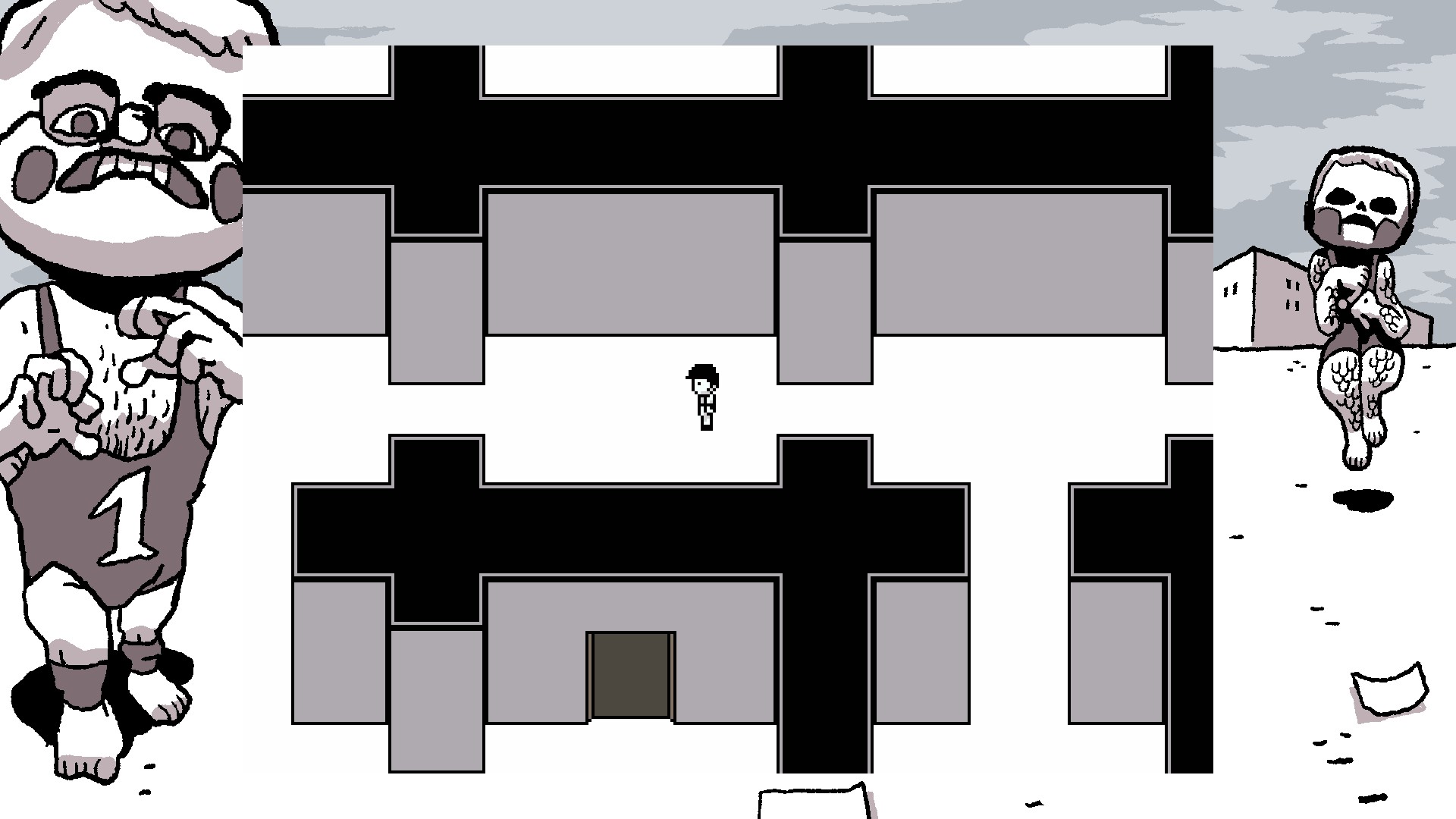
Naturally, one could say then that with combat not being the game’s focus, this point is poorly made. I could certainly concede that for a more narrative game, combat would be a secondary consideration to the other pillars of its construction. Additionally, one of Off’s core themes is around the obligate violence inherent to video games, and RPGs in particular – it clearly understands its own hypocrisy. Having said that, combat occurs with such frequency that I have no choice but to acknowledge its lack of place. Even in a game intending to critique the inherent violence of the genre is forcing me to participate in such violence, and that violence is incredibly dull. This is especially egregious when we consider the puzzles.
Puzzles are another pillar of Off’s game design structure. These, similarly, did very little for my enjoyment. In most cases, Off’s puzzles are data entry; you find a door you want to open and you open it by inputting a number. Sometimes these numbers are in the wrong order; sometimes you need to remember that an arrow is actually backward; sometimes the number is hidden in a book, but the number is usually just a number. Off’s new help function further simplifies such puzzles, helpfully placing the numbers in the right order or in some cases completely negating the mechanics of specific puzzles. This is appreciable as an accessibility option but it does underscore the banality of the puzzles somewhat. My belief is that puzzles should be an expression of investiture, a commitment to thinking about the world beyond the most immediately linear way. Managing your carrying capacity can be a puzzle; thinking through a particularly lethal set of enemy tactics can be a puzzle. Memorization, while potentially requiring a type of puzzle-solving ability, isn’t a worthwhile exclusive mechanic. For myself, not using the help function as I was, it was merely testing that I had enough post-it notes on my desk to complete this game. So now I am down five post-it notes, I look like I’ve been listening to number stations again, and I’m considerably unamused.
That brings us then to the story. An RPG’s story, to me, is its most important part. It can make a painful game tolerable and a good game excellent. I have endured some of the worst game design imaginable in pursuit of a good story. In the case of something like Off, this is less a misstep and much more a position of personal knowledge; an “unfortunateness” of things I happened to have already experienced. Without delving into heavy spoilers, Off is a game with a central theme around unethical righteous violence. Our protagonist, the Batter, is compelled by a divine mission to purify the world. Within about two text boxes, you can pretty easily identify that the Batter is an amoral slab of a character; he only says enough words to get him on his way, and any disagreements about conduct are negotiated with Dick’s Sporting Good’s favourite customer’s most recent purchase. As a participant in the story, you are also a character, the unyielding force driving the Batter’s actions. Characters address you and break the fourth wall constantly to remind you that this is, in fact, a video game. As you proceed through the story, you enact your violence upon the inhabitants of the world’s zones. When the game ultimately extends to you an investment test within the last five minutes of the game, I found that I felt very little. I was disappointed, utterly. Off had committed the sin that I hold the most contempt for in art: of boring me.
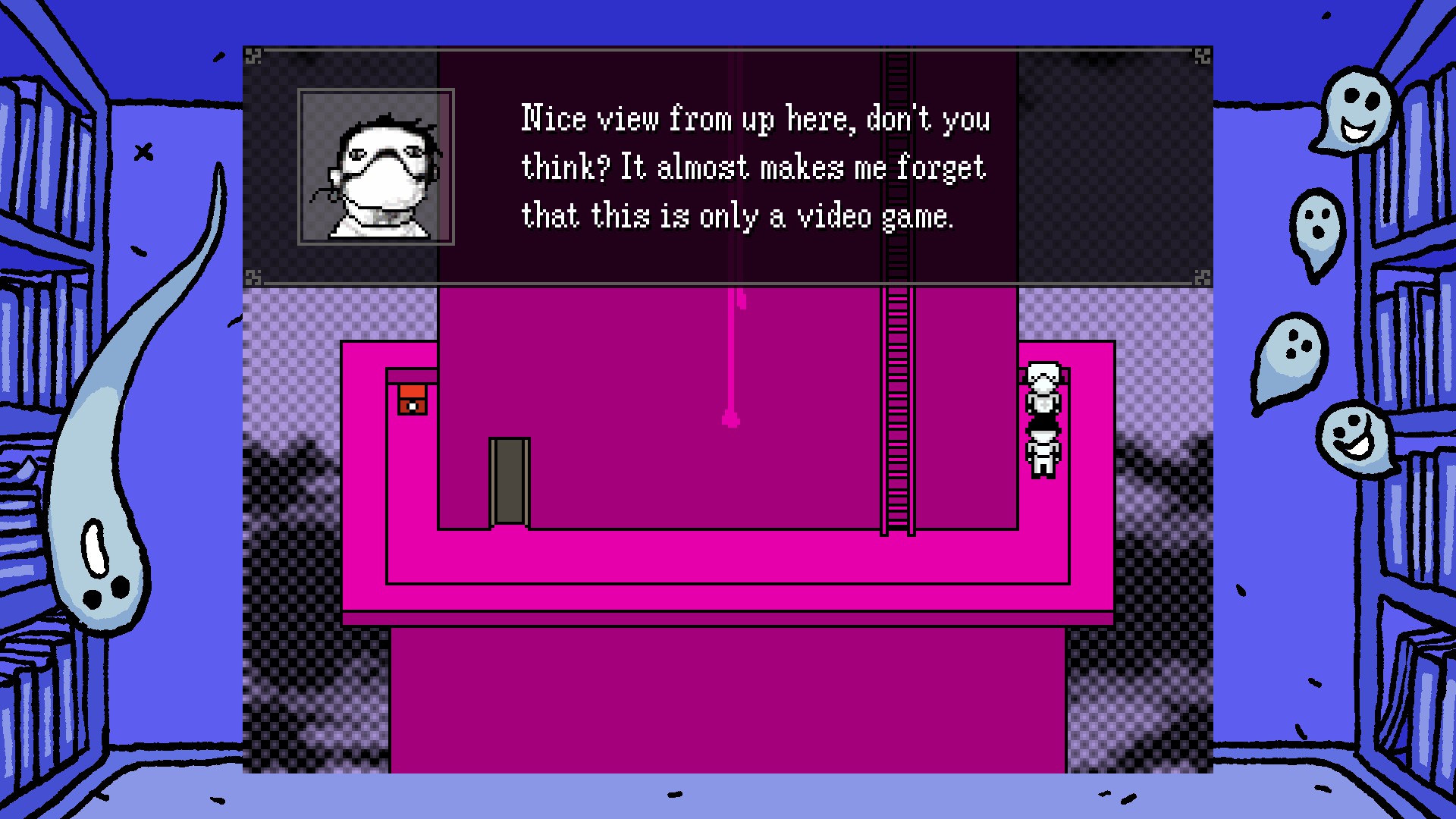
I am an old hand of RPGs and video games at large. None of these ideas are particularly unique or novel to me. By the time of Off’s original release in 2008, there were many games, even some indie games, that wanted to reckon with the idea of violence. Metal Gear Solid 3’s walk through the dead waterway, the manifestation of all your sins, was originally released in 2004. Moon RPG, famously called an “anti-rpg”, was released in 1997 and explored meta-textual relationships between avatar and player, while also exploring the violence inherent to RPGs. Iji – an indie platformer and shooter — released the same year as Off and affords the player the agency to actually decide how much violence is going to define them. Baten Kaitos, both 1 and 2, explore the idea of a player being a spirit from another world granting divine investiture in the story’s protagonist.
I mention all these specific examples to highlight the aforementioned “unfortunateness” that Off occupies in my mind. It is unfortunate because every single one of those games were played before I ever interacted with Off. Their stories ultimately are more sophisticated or simply don’t lean on the singular theme quite as hard as Off does. This isn’t exactly criticism for me especially because a game, as a semi-static cultural artifact, doesn’t have the ability to tailor itself to anyone’s given life experiences. However, Off as a story was never going to land with me. I have seen and reckoned with the things that it said years before it ever reached me. Even Undertale, a game that Off explicitly inspired, does more interesting things in a far less messy way. There is an absolute glut of games which have expanded on Off’s thesis statement, games that are much more interesting or simply more fun to play. The Lisa series, Deltarune, Fear and Hunger all feel like much more pensive, considered games.
Even as I had all of these thoughts, I was afflicted with my own internal rebuttal:
“This game is from 2008; it was only made by a handful of people. Aren’t you being too harsh?”
It’s what led me to feeling quite so guilty about my negativity. This game means a lot to many people. Yet, I was not there for the inception of this conversation. We cannot unwind the clock. Humans are creatures of stories, I’ve found. There are only so many stories to be told in this world, and as time goes on they are retold again and again, every time with different actors on different stages. Unfortunately for my reception of this game, I’ve heard this story already, better told in other places. I have reckoned with my own guilt in virtual killings; I have mourned over the deaths of polygons and pixels. A game which declares me guilty at the end of a chain of mandatory murders does not stab my heart that way it would have if it had been the first to do so.
What makes all these problems stand out so much is an issue of pragmatism. Off, in its original state, is a free game. It is complete and even now you can play it. This remake, while adding some additional bosses, new music, and key art, is still basically the same game. While I don’t typically enjoy bringing commerce into my reviews, it’s a factor here. I simply don’t think the cost is worthwhile for what was originally a free game. Certainly, there are some quality-of-life changes but based on the parts I played in both versions, I don’t think this game necessitated a remaster.
Ultimately, I knew partway through the final stretch that this review was going to be unpersuasive to a demographic which already likes this game. Those moved and affected by Off originally would continue to be those most interested in this more polished remaster. I was not among that number. Nothing that I’ve said here is irremediably bad.
Simply, the game was too late; the switch was already Off.
Okay
"This Is Only a Video Game"
Off is unfortunately superseded by games that have come before and afterward resulting in a game that is difficult to recommend when considering its freeware origins.

